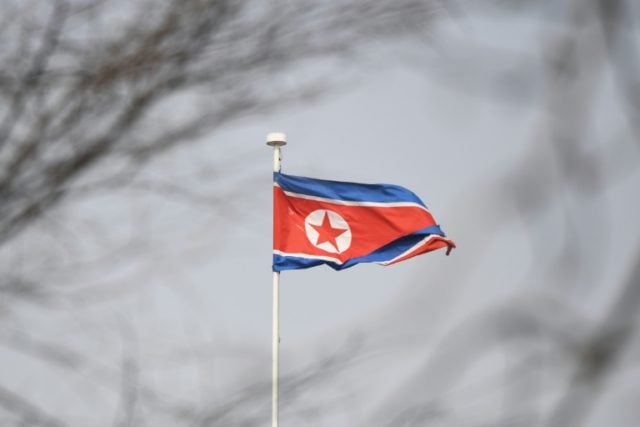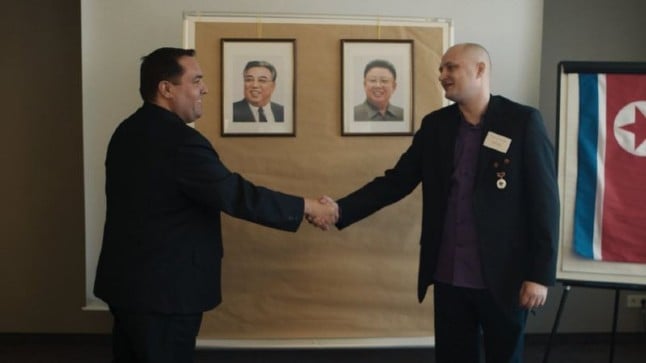Spain's National Court identified the leader of the group which invaded the embassy and stole records and computers on February 22 as 35-year-old Mexican national Adrian Hong Chang.
According to the court, he went by the name “Matthew Chao” while in Madrid, booked his Uber under the name “Oswaldo Trump”, and led the group of 10 who stormed the embassy wielding knives and fake guns.
After the raid he allegedly flew to New York and has not been heard from since.
READ MORE:
- FBI offered info stolen in raid on N.Korean embassy in Madrid
- Dissidents behind raid on N.Korea Madrid embassy
- Police probe strange incident at Madrid's North Korean embassy

In the United States, he goes by the name Adrian Hong.
Well-spoken, with detailed knowledge of North Korea's politics and economy, Hong in 2005 co-founded the California-based Liberty in North Korea group (LiNK), which helps resettle refugees from the country.
In December 2006 he was arrested together with two other field workers in China as they tried to help six North Koreans escape their country.
They were released after being held for 10 days.
But not long after that Hong left LiNK and began campaigning for human rights and regime change in Pyongyang, presenting himelf as chief executive of a consultancy called Pegasus Strategies LLC.
The company was described in one article on Hong as “an initiative that uses cutting-edge technology to penetrate closed societies and empower people in those nations.”
His resume from when he was a fellow at the TED organization in 2010 said he has lectured at South Korea's Ewha University on human rights and foreign policy, and was a research fellow at Yale University.
'Dress rehearsal'
But then his activity gets murky. Few in Washington's close-knit circles of North Korea watchers said they knew much about him, or who finances his activities.
In 2011 he showed up in Tripoli, Libya.
A former TED associate of Hong's, Jordanian businessman Suleiman Bakhit, said that during the first Libyan civil war, they built an operation to take some 15,000 Libyan civilians to be treated in Jordanian hospitals.
He continued advocating about North Korea.
“I consider the Arab Spring a dress rehearsal for North Korea,” Hong told Abu Dhabi's The National newspaper in 2011.
“But North Korea is a far more lethal, prepared and massive opponent for the people than Syria, Libya, Egypt, Tunisia or Yemen, in every category: pervasiveness of public security and secret police, size of military and mobilisation, hopelessness and general impoverished and malnourished state of the people.”
In 2015, Hong founded the Joseon Institute, based in New York and named after the 14th-19th century dynasty that ruled the Korean peninsula.
Its website describes its mission as to “prepare actionable blueprints on how to manage a transition and prepare for a brighter future in a new North Korea,” and suggests it has secret “planning commissions” to direct the country.
Hong's link to the “Cheollima Civil Defense” group, which took credit for the attack on the embassy and apparently offered the materials it took to the FBI, is unclear.
The group presents itself as the government-in-waiting for a “Free Joseon”: “We declare this entity the sole legitimate representative of the Korean people of the north,” its website says.
Yet the group could very well be tied to Hong: “Cheollima” is the name of a powerful stallion in East Asian mythology — a direct parallel to Pegasus of Greek mythology.
By AFP's Paul Handley



 Please whitelist us to continue reading.
Please whitelist us to continue reading.
Member comments